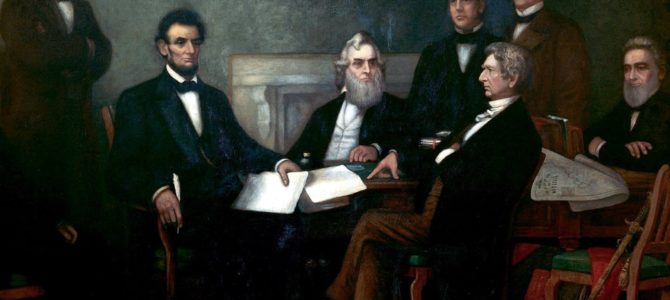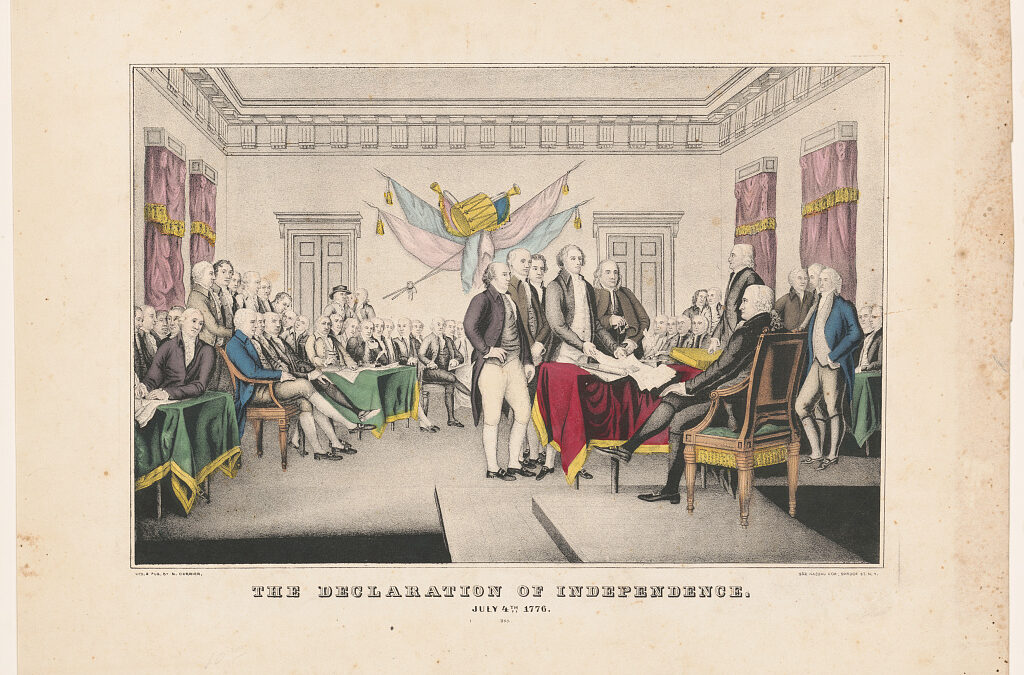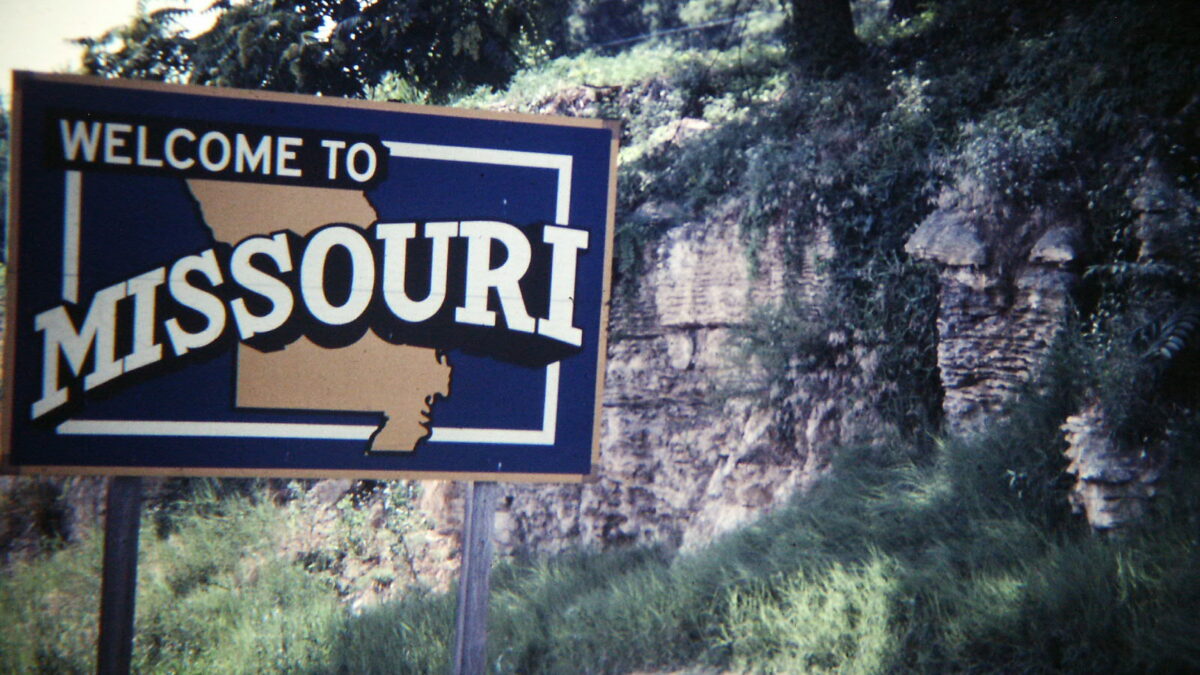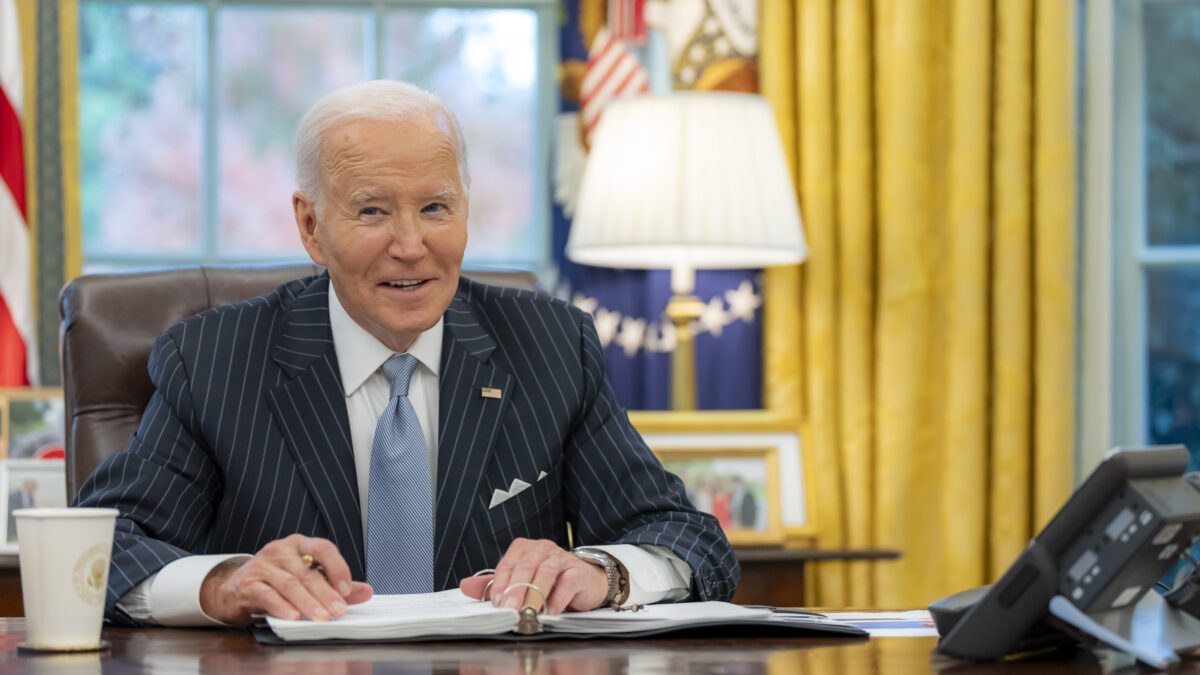
“Ladies and gentlemen: The story you are about to see is true,” declared the introduction to the classic television program “Dragnet.” “All we want are the facts, ma’am,” asserted police officer “Joe Friday” during his investigations. True stories; just the facts: it seems so straightforward, doesn’t it? Not when American social studies curricula are concerned.
“I teach my students that [Thomas] Jefferson sat there and wrote ‘all men are created equal,’ but he made his money off plantations,” said Jocelyn Foshay, a middle school social studies teacher in Dallas, according to a recent Washington Post article. “I give the students the facts and let them draw their own conclusions,” she said. “That’s what learning is.” The Post loved Foshay’s line so much, they featured it again in a June 6 editorial, claiming she was “articulating a core principle of pedagogy that should be animating the debate about how history is taught.”
Advocates of incorporating critical race theory into curricula argue they are on the side of truth, facts, and history. The Southern Poverty Law Center’s grade-school curriculum is explicitly called “Teaching Hard History,” the implication being that some history, if difficult to learn about, is the hard, cold truth.
“History is not rainbows and unicorns,” Foshay told the WaPo. “But you can look at the twisted and the cruel and still take pride in how far the country has come.” Conservative efforts to reject the 1619 Project’s curriculum, in turn, are labeled “misguided” attempts to keep true history from America’s youth.
There are at least two problems here. The first is simply that much of the history offered by the 1619 Project and similar critical race theory initiatives is simply wrong. The second is that what teachers choose to cover with their limited time with students will reveal what biases and agendas that educator has related to history.
‘Fake but Accurate’
As I noted in an earlier Federalist article, professional historians have called the 1619 Project “a very unbalanced, one-sided account,” “wrong in so many ways,” “not only ahistorical,” but “actually anti-historical” and “a tendentious and partial reading of American history.” Fact-checkers for the project were ignored and sidelined, which says something about their commitment to factual history.
Scholar Peter W. Wood summarizes some of the more egregious errors in his book “1620: A Critical Response to the 1619 Project”:
It is not true that the arrival of slaves on the White Lion was the beginning of chattel slavery in America, where it was widespread before Columbus, or in Virginia, where those slaves may have become indentured servants once debarking in the Chesapeake. It is not true that the American Revolution was fought to protect slavery. It is not true that cotton production was the foundation of American wealth in the nineteenth century, or that the plantations were the guiding model and origin of American capitalism. It is not true that Lincoln was a racist hell-bent on sending blacks back to an Africa they had never seen and that could not be considered their home.
The response of 1619 Project authors and advocates to these criticisms has been either to ignore complaints regarding historical accuracy, to accuse such detractors of fear, racism, or bigotry, or to claim that 1619 Project efforts are “fake but accurate.” That ostensibly means that even if some details are erroneous, the larger project and its significance remain relevant.
Moreover, Forsay’s reductionist comment denigrating Jefferson for profiting from slavery is so blinkered it borders on absurdity, given that the Virginia polymath was responsible for, among other things, the seminal Statute of Virginia for Religious Freedom; founding the University of Virginia; abolishing the slave trade while president; and helping establish the Library of Congress. There’s no time to discuss that, however, when you’re a teacher who has explicitly stated your plans to focus on teaching students about “systemic racism.”
Critical Judgments
As a former high-school history teacher myself, Forshay’s patently derogatory and prejudicial approach to the Framers leads into the even more salient problem with the 1619 Project and other critical race theory initiatives: that these ideological programs are imbalanced and incomplete. The reason is that when professionals — be they grade-school educators or historians — claim they are presenting “just the objective facts,” they are being disingenuous and even manipulative about the broader field of historical study.
Here’s why: many, many historical data points can be taught for any given subset of American, European, or global history. For almost any historical topic we seek to understand, there are countless books and endless reams of primary documents or artifacts that can be considered and analyzed.
Thus even if we talk about the history of the American Civil War, we can approach it from the perspective of military, social, cultural, economic, political, religious, sexual, or racial history. I wrote my undergraduate thesis just on the topic of the black religious experience during the Civil War, and I barely scratched the surface of the available data.
In truth, every educator and historian must make critical judgments about what facts he or she will include in books or lesson plans, and how those groups of facts fit into some broader narrative. Even when critical race theory advocates prioritize true historical data, they are often citing what supports their specific pedagogical and ideological agenda, and often ignoring data that does not fit it.
To some extent, this is inevitable, even for the most professional history teachers who aim to be unbiased and fair. Each teacher has an idea of what history means and why it’s important, and teachers leverage whatever data will substantiate their case.
But what is particularly pernicious is to pretend history educators are not actually involved in this fundamentally subjective pedagogical process, but, as critical race theory activists erroneously claim, replacing earlier historical narratives that were flatly erroneous. What is really going on is not replacing error with truth, but foregrounding some data (typically the experience of persons of color or other “marginalized groups”) at the expense of others (typically of many white Americans).
‘Just the Facts’ Is Just Half the Battle
There’s not anything essentially wrong with spending more time discussing racial or social history. If done professionally and factually, it’s still history. But it also means students will get less of other forms of history (typically political, military, religious, or economic), many of which are necessary to understand their nation’s story as it relates to their duties as citizens.
It also means, in the case of critical race theory, that educators elide an older, traditional way of understanding of America as a remarkable, unprecedented socio-political experiment that brought great good to its citizens and in certain respects changed the world for the better. Instead, America is accused of being systemically racist, even in her founding documents and political ideals.
In their widely lauded book, “The Mind of the Master Class: History and Faith in the Southern Slaveholders’ Worldview,” renowned, award-winning historians Elizabeth Fox-Genovese and Eugene D. Genovese note:
Today, almost everyone views slavery as an enormity and abolition as a moral and political imperative. Yet as recently as two or three hundred years ago, the overwhelming majority of civilized, decent people would not have agreed: Indeed, they would have found such notions surprising.
Indeed, I would imagine students learning under critical race theory curricula will not learn that in 1860, American Indians owned approximately 5,000 black slaves, or that there were black American slaveholders, or even that cannibalism, torture, and human sacrifice was common among American Indian and African peoples. The Genoveses thus continue: “the historically appropriate question is: What, after millennia of general acceptance, made Christians — and, subsequently, those of other faiths — judge slavery as an enormity not to be endured?”
The answer to that question is surely complex and multi-faceted. I would however argue that it was something in Christianity itself, and perhaps even something in the documents and beliefs of the founding generation of the American political experiment, that led human opinion to slowly coalesce into agreement about slavery during the nineteenth and twentieth centuries.
Yet to argue such a case would imply there was truly something of unprecedented value in Christian, and perhaps even Western civilization, given that the idea of human rights originated in the West, and has only become accepted across the globe in the last century. To consider such hypotheses would by extension expose the error and hypocrisy of critical race theory proponents, given that certain identitarian victim classes were sometimes the victimizers.
As far as critical race theory is concerned, it’s never simply “just the facts.” Often it’s not even facts at all.









